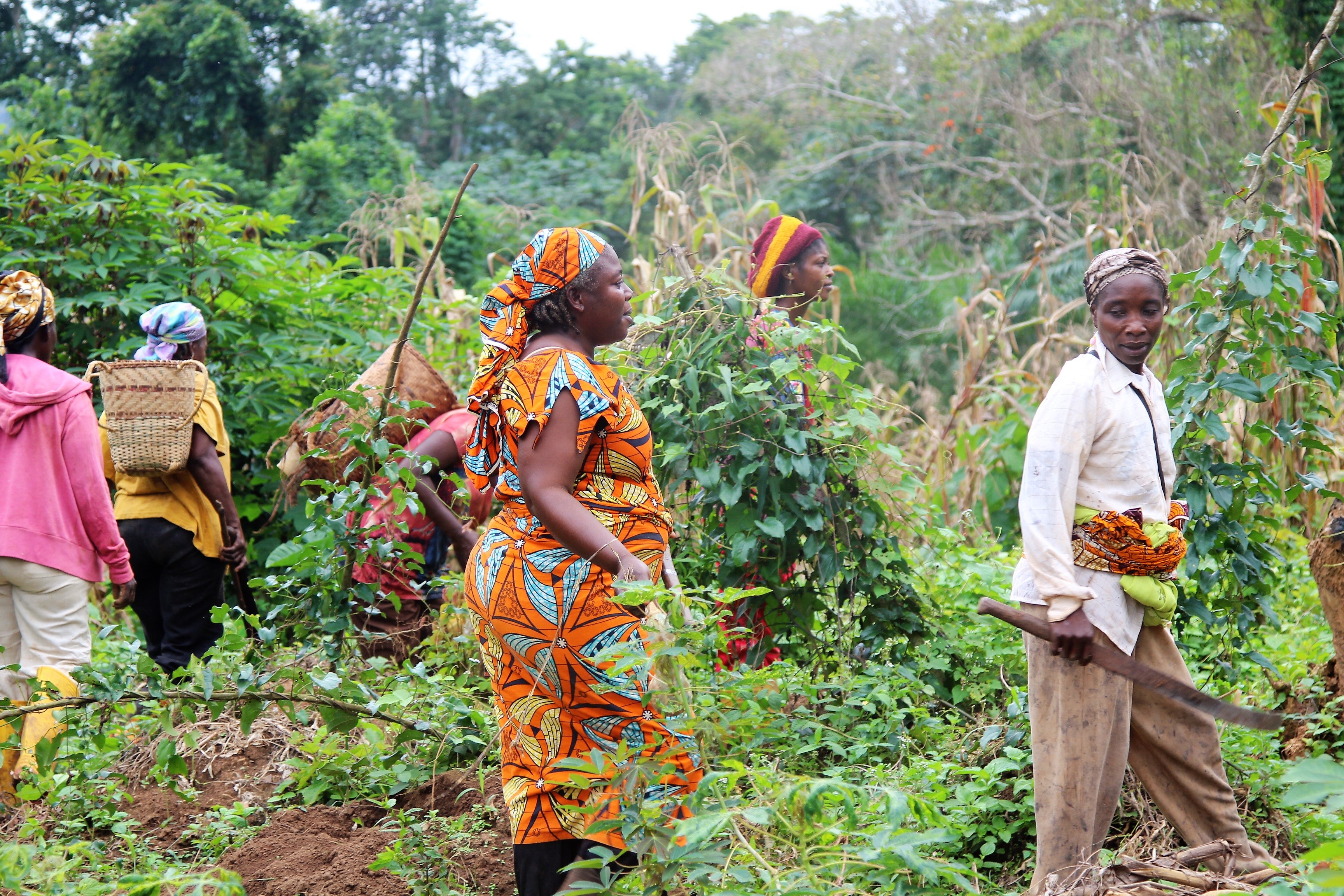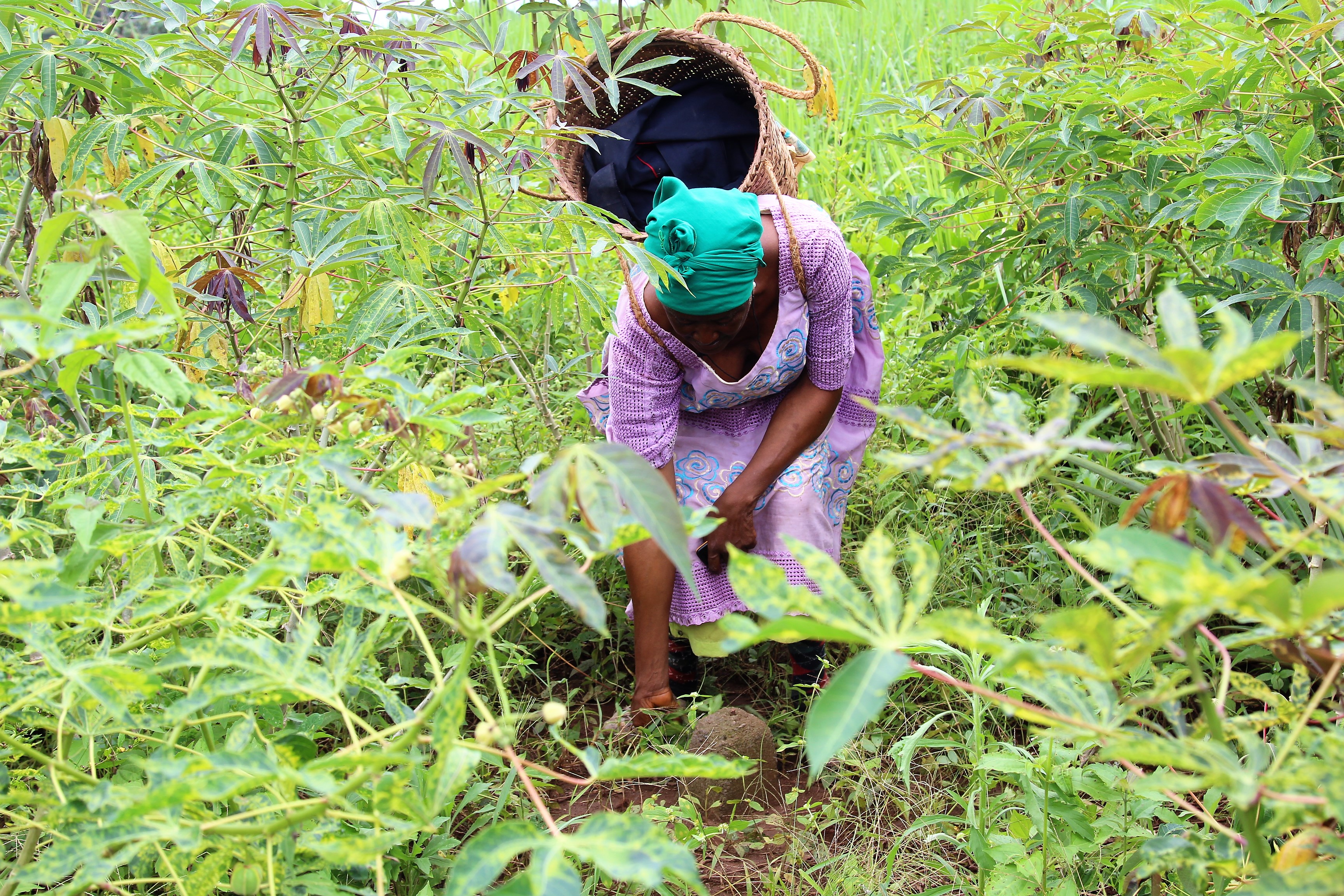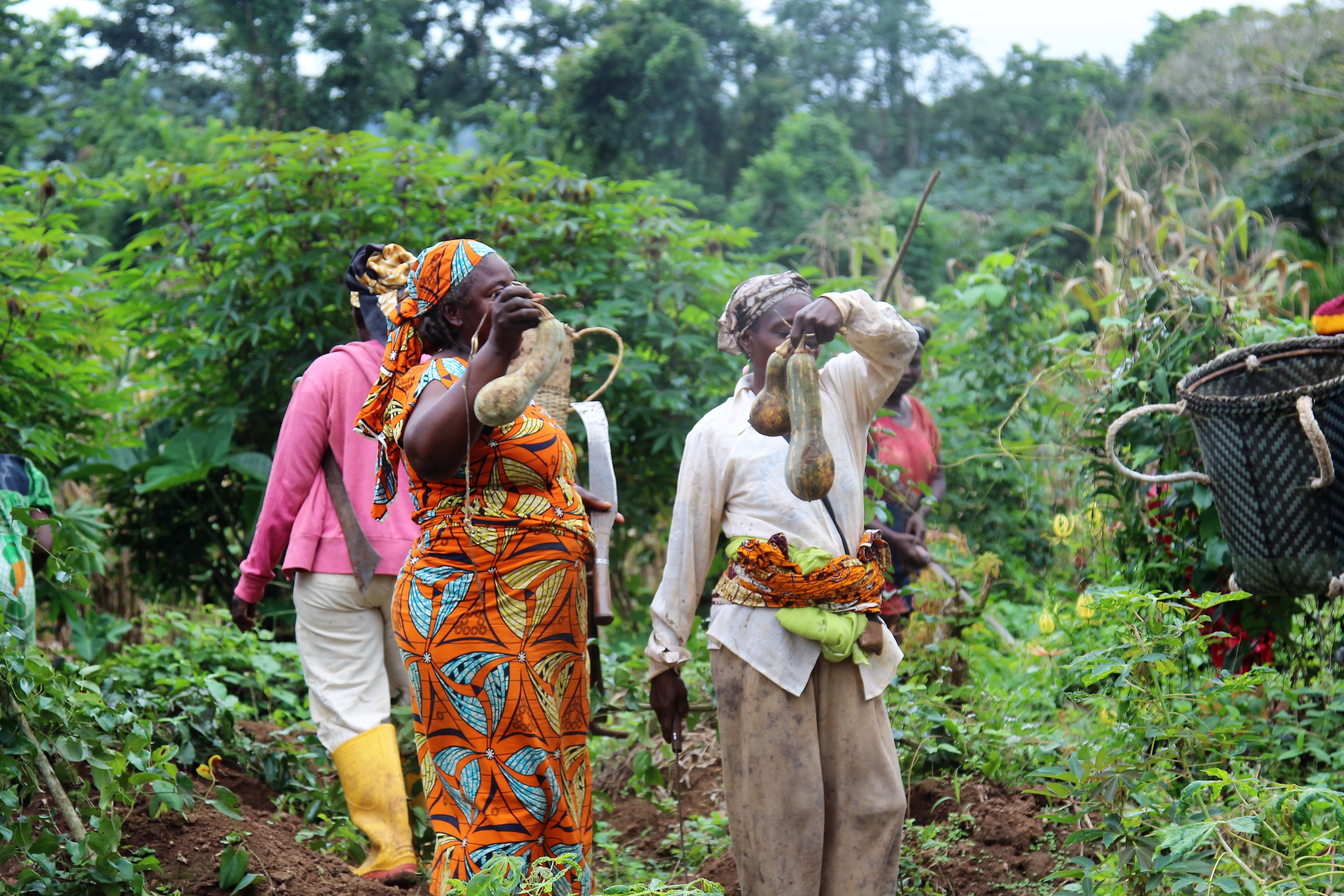Securing rural women’s access to land in Cameroon
Date:
UN Women and the government of Cameroon are facilitating the acquisition of over 80 land titles for rural women and women associations along the Bachenga-Ntui-Yoko highway project area. The land titles which range from 2,000m2 to 40,000m2 seek to guarantee land security and facilitate access to credit facilities in view of increasing agricultural investments and economic empowerment of rural women.

Members of a rural women cooperative cleaning their cassava farm Photo: UN Women/ Teclaire Same
Rural women in Cameroon play a major role in guaranteeing local food security through the production of an estimated 90% of food consumed nationwide. Yet rural women do not have secured access to the land they plough and lack access to financial resources, improved farm inputs and markets to guarantee optimal production and economic empowerment. As part of its efforts to promote gender equality and economic empowerment of rural women, UN Women is supporting rural women towards the acquisition of land titles, improved farm inputs, access to finance and access to markets.
The ‘Gender Road Project’ financed by government of Cameroon, the African Development Bank (AFDB), the Development Bank of Central African States (BDEAC), JICA, and AFD launched the initiative to support rural women to obtain land titles in August 2017. Beneficiaries in all three council areas that make up the Bachenga - Ntui - Yoko highway project were sensitized on the process of obtaining land titles and the required documents to be submitted. 85 beneficiaries including individuals and groups were retained based on predefined criteria.

One of the beneficiaries of the land titles is Mme Mbedja Catherine Makia popular known as Mama Cathy, resident of Ntui and the president of the Network of Women Associations of Ntui Subdivision, a network regrouping over 45 associations. Mme Mbedja Catherine will obtain a land title for 30, 000m2 (3 hectares) of land on which she currently grows a variety of food crops and fruit trees. During a visit to her farm land she expressed her joy for being one of the project beneficiaries. “Through the access to land project I will benefit from 3 ha which has already been mapped and boundary pillars planted. In this farmland I cultivate yams, groundnuts, maize and cassava for home consumption and the excess is sold in the local market and the proceeds use to cater for my family and send the children to school. With the land title I can easily obtain a loan from the local micro finance institution to enable me to pay workers to cultivate my farm since I am getting old. This way I can make more money from my activities,” Mama Cathy explained.
According to Mr. Salifou Hoimgbe, Divisional Delegate of Land Tenure and State Property of Mbam and Kim, cadastral survey and public consultation of stakeholders has been completed and the technical and administrative files have been constituted for onward transfer to the Regional delegation and the Ministry for issuance of the land titles. “We expect the land titles to be signed by the respective officials by mid December 2018,” Mr. Salifou told UN Women team during a recent follow-up visit. The delegate also lauded this innovative initiative by UN Women to support rural women in this area to obtain land titles. “Without this financial and technical support these women could not have otherwise engaged in the process which is complex and expensive for rural women,” Mr. Salifou added.

Members of a rural women cooperative proudly showcasing melons harvested from their farm Photo: UN Women/ Teclaire Same
The ‘Gender-Road Project’ coordinator Mr. Ateba, explained that land titling can facilitate economic empowerment of women as it can be used as collateral to obtain credits to invest in their activity. “The acquisition of land titles will contribute in economic empowerment of beneficiaries who use the land title as collateral to obtain a loan from the bank to invest on their activity. A land title also reassures women that they won’t lose ownership of their land and this encourages women to make long term investment on the land which can yield more profits,” Mr Ateba added.